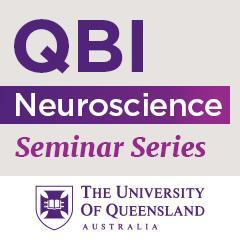Professor Roland Brandt - Osnabrück University, Germany : "“From kiss-and-hop to aggregation: Targeting tau in the fight against neurodegeneration”

Speaker: Professor Roland Brandt
Osnabrück University
Germany
Title: “From kiss-and-hop to aggregation: Targeting tau in the fight against neurodegeneration”
Abstract:
Tauopathies such as Alzheimer’s disease are characterized by the aggregation of the microtubule-associated protein tau into neurofibrillary tangles composed of paired helical filaments (PHFs). The pathological changes of tau are closely linked to neurodegeneration, making tau a prime candidate for intervention. Using a live-cell imaging approach, we previously showed that tau interacts with axonal microtubules in a highly dynamic manner under physiological conditions, which we termed „kiss-and-hop“. Disease-associated changes of tau affect the interaction of tau with microtubules potentially inerfering with the physiological activity of tau. Using an aggregation-prone tau mutant, we developed an approach to monitor pathological changes and to screen for novel tau aggregation inhibitors in living neurons. Through chemoinformatic analysis, we identified 2-phenyloxazole (PHOX) derivatives as putative polypharmacological small molecules that interact with tau, inhibit tau aggregation, and restore physiological microtubule interaction of tau in neurons. Molecular dynamics simulations highlight cryptic channel-like pockets that cross tau protofilaments and show that binding of PHOX reduces the ability of the protofilaments to adopt a PHF-like conformation. We disucss how live cell imaging could contribute to identify compounds that inhibit tau aggregation in order to restore tau’s physiological function in disease.
Ref.: Janning et al. (2014) Single molecule tracking of tau reveals fast kiss-and-hop interaction with microtubules in living neurons. Mol. Biol. Cell 25:3541-3551; Conze et al. (2022) Caspase-cleaved tau is senescence-associated and induces a toxic gain of function by putting a brake on axonal transport. Mol. Psychiatry 27:3010-3023; Pinzi et al. (2022) Quantitative live cell imaging of a tauopathy model enables the identification of a polypharmacological drug candidate that restores physiological microtubule regulation. bioRxiv.
About Neuroscience Seminars
Neuroscience seminars at the QBI play a major role in the advancement of neuroscience in the Asia-Pacific region. The primary goal of these seminars is to promote excellence in neuroscience through the exchange of ideas, establishing new collaborations and augmenting partnerships already in place.
Seminars in the QBI Auditorium on Level 7 are held on Wednesdays at 12-1pm, which are sometimes simulcast on Zoom (with approval from the speaker). We also occassionally hold seminars from international speakers via Zoom. The days and times of these seminars will vary depending on the time zone of the speaker. Please see each seminar listed below for details.



